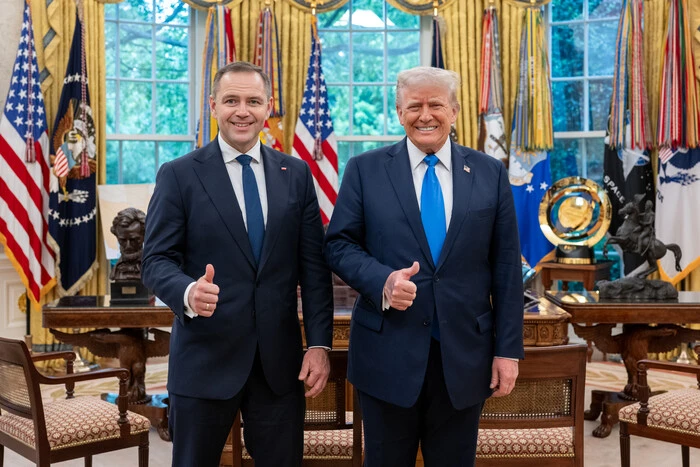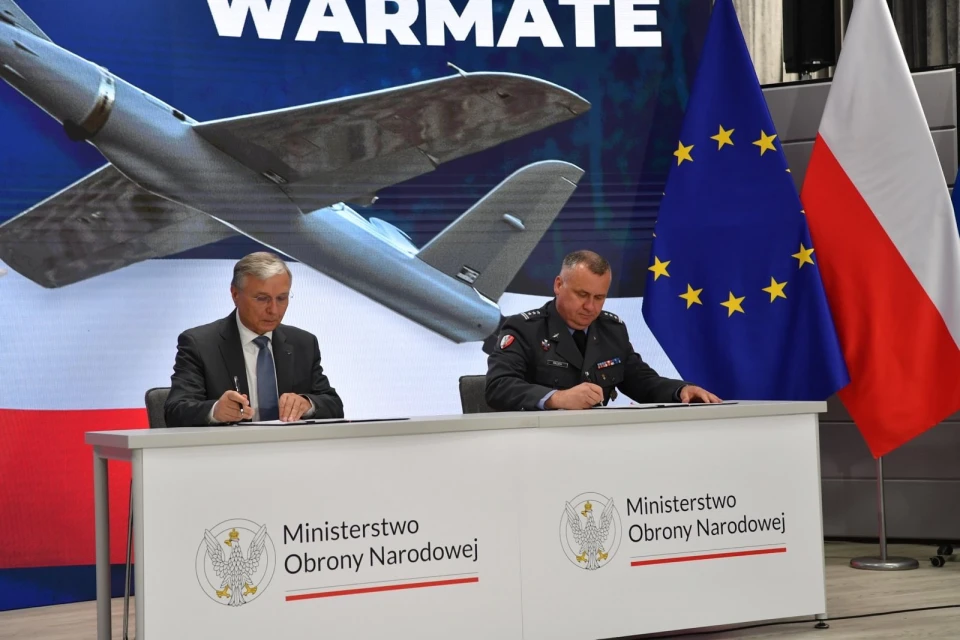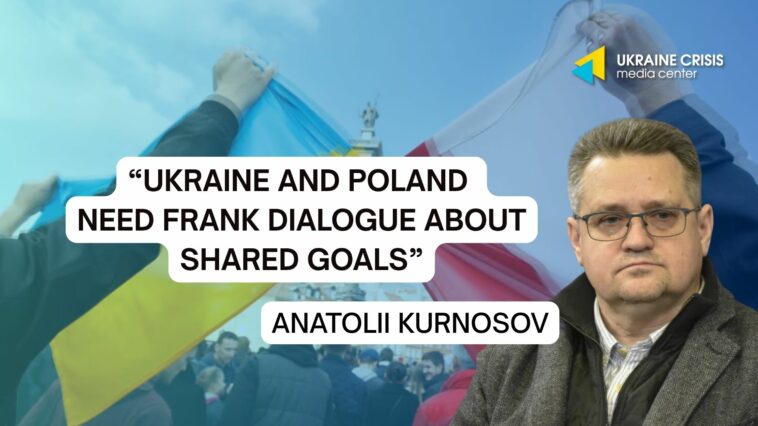Karol Nawrocki has been elected as the new President of Poland. His political platform signals a tougher stance toward Ukraine – particularly on issues of Euro-Atlantic integration and historical memory policy. This, in turn, raises a number of questions about the future of Polish-Ukrainian relations which, despite the current cooling, remain a key factor in regional security.
We spoke with Anatolii Kurnosov, analyst at the Center for Political Studies “Doctrine,” Executive Director of the NGO “Circle of European Dialogue,” and expert with the Ukrainian-Polish Media Platform.
Could the issue of Ukraine become a point of internal political conflict between the government of Donald Tusk and the newly elected president?
Relations between President Karol Nawrocki and the government of Donald Tusk will play a critical role. The current Polish government had placed high hopes on the victory of Rafał Trzaskowski. In fact, they partly justified their own failures by pointing to the obstructionism of President Andrzej Duda, who was said to have blocked government initiatives.
Now, it seems the confrontation between the president and the government will become even more fundamental, further complicating communication. Therefore, internal political conflict could affect interstate relations.
In terms of foreign policy, Nawrocki is oriented primarily toward a close alliance with Washington – even amid the gradual retreat of U.S. military presence in Europe. His signing of a declaration with Sławomir Mentzen (the far-right Confederation candidate who placed third in the election) in support of Ukraine’s NATO membership is part of this strategy. Within the Law and Justice (PiS) camp, there is an implicit admission: without the consent of the U.S. and other key allies, Ukraine will not be able to join NATO.
The Donald Tusk government, on the other hand, coordinates its position with Brussels and Berlin. This could also become a point of contention, particularly concerning the formation of European defense policy. Supporters of PiS and other right-wing parties tend to view pan-European defense initiatives with suspicion, claiming they primarily benefit German corporations and strengthen Germany’s economy.
Moreover, the Polish Constitution does not clearly delineate the foreign and security policy powers of the president and prime minister. For instance, Poland has yet to appoint a new ambassador to Ukraine, and the embassy is currently headed by a chargé d’affaires. This is likely a result of internal political struggle – and such a situation does not support the development of bilateral relations.

How did Russia react to Nawrocki’s election?
Russians did not express enthusiasm over Nawrocki’s victory. Kremlin propagandists have stated outright that they “don’t see him as one of their own.”
Notably, the Investigative Committee of the Russian Federation has opened a case against Nawrocki related to the dismantling of Soviet monuments in Poland. At the time, the president-elect was head of Poland’s Institute of National Remembrance. So labeling Nawrocki as a pro-Russian politician is absurd.
How would you assess the potential for cooperation between Kyiv and Warsaw?
Ukraine and Poland need a strategic and honest conversation about shared goals – where we will cooperate and where we will compete.
For example, if conflicts in the transportation sector are inevitable, perhaps that area should be openly acknowledged as competitive. On the other hand, agriculture offers potential for cooperation – logistics, processing, and export.
In the security sphere, Polish experts are impressed by Ukraine’s success in drone production. There are ideas for establishing joint ventures in Poland, particularly due to security concerns. Some Polish experts have even proposed the creation of a joint missile program.
But the key question today is how we build this relationship: directly or through Brussels?
I believe that joint initiatives at the intergovernmental level represent a more practical and constructive approach in the framework of bilateral relations.




